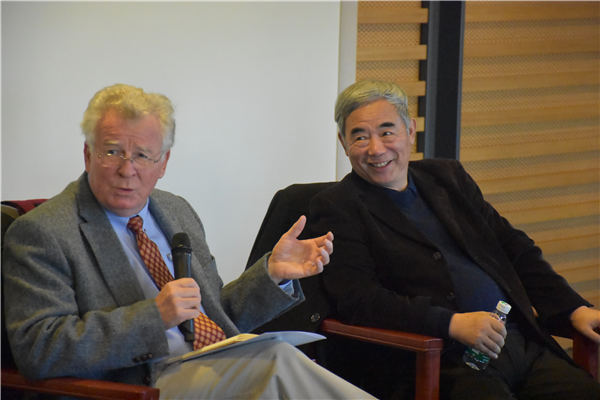A question of connections
By Fang Aiqing | China Daily | Updated: 2018-12-24 07:05

Though not many people learn and use Latin these days, a number of Chinese students realize it is the key to Western history, science, philosophy and religious studies.
"The Chinese value history," says Ferrero.
However, he recognizes the cultural differences between Italy and China and stresses it's difficult to define an "Italian culture". So, be careful, but relax and be tolerant, says Ferrero.
David Bartosch, German philosopher and a professor at the School of International Relations and Diplomacy at BFSU, has for years been observing politics and diplomacy, especially China's relationship with Europe, using a philosophical perspective.
He sees the Belt and Road Initiative as an inevitable result of the development of Eurasian civilizations and says that in turn Beijing should and will be more international with the progress of BRI.
Bartosch calls for detailed and deeper thinking of further policies of reform and opening-up. And he says he hopes that German thinkers will participate.
Zhang Xiping, the director of the BFSU Academy of Comparative Civilizations and Intercultural Communication, says the presence of sinologists like Ames shows that Chinese culture is global and that more academic discussions are needed to promote research on it.
Since 2008, Zhang has devoted himself to studying and publishing documents on East-West cultural exchanges in the Ming (1368-1644) and Qing (1644-1911) dynasties that are housed at the Vatican Library and were mainly written by missionaries of the time.
Zhang says he recently got to know that there is a large number of documents on China in Lyon, France, and wants more support to collect and study them.
























